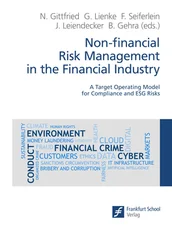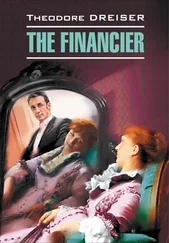Theodore Dreiser - The Financier
Здесь есть возможность читать онлайн «Theodore Dreiser - The Financier» весь текст электронной книги совершенно бесплатно (целиком полную версию без сокращений). В некоторых случаях можно слушать аудио, скачать через торрент в формате fb2 и присутствует краткое содержание. Жанр: Классическая проза, на английском языке. Описание произведения, (предисловие) а так же отзывы посетителей доступны на портале библиотеки ЛибКат.
- Название:The Financier
- Автор:
- Жанр:
- Год:неизвестен
- ISBN:нет данных
- Рейтинг книги:5 / 5. Голосов: 1
-
Избранное:Добавить в избранное
- Отзывы:
-
Ваша оценка:
- 100
- 1
- 2
- 3
- 4
- 5
The Financier: краткое содержание, описание и аннотация
Предлагаем к чтению аннотацию, описание, краткое содержание или предисловие (зависит от того, что написал сам автор книги «The Financier»). Если вы не нашли необходимую информацию о книге — напишите в комментариях, мы постараемся отыскать её.
The Financier — читать онлайн бесплатно полную книгу (весь текст) целиком
Ниже представлен текст книги, разбитый по страницам. Система сохранения места последней прочитанной страницы, позволяет с удобством читать онлайн бесплатно книгу «The Financier», без необходимости каждый раз заново искать на чём Вы остановились. Поставьте закладку, и сможете в любой момент перейти на страницу, на которой закончили чтение.
Интервал:
Закладка:
Nevertheless, nothing was done until the March following Butler’s death, when both Stener and Cowperwood had been incarcerated thirteen months—a length of time which seemed quite sufficient to appease the anger of the public at large. In this period Stener had undergone a considerable change physically and mentally. In spite of the fact that a number of the minor aldermen, who had profited in various ways by his largess, called to see him occasionally, and that he had been given, as it were, almost the liberty of the place, and that his family had not been allowed to suffer, nevertheless he realized that his political and social days were over. Somebody might now occasionally send him a basket of fruit and assure him that he would not be compelled to suffer much longer; but when he did get out, he knew that he had nothing to depend on save his experience as an insurance agent and real-estate dealer. That had been precarious enough in the days when he was trying to get some small political foothold. How would it be when he was known only as the man who had looted the treasury of five hundred thousand dollars and been sent to the penitentiary for five years? Who would lend him the money wherewith to get a little start, even so much as four or five thousand dollars? The people who were calling to pay their respects now and then, and to assure him that he had been badly treated? Never. All of them could honestly claim that they had not so much to spare. If he had good security to offer—yes; but if he had good security he would not need to go to them at all. The man who would have actually helped him if he had only known was Frank A. Cowperwood. Stener could have confessed his mistake, as Cowperwood saw it, and Cowperwood would have given him the money gladly, without any thought of return. But by his poor understanding of human nature, Stener considered that Cowperwood must be an enemy of his, and he would not have had either the courage or the business judgment to approach him.
During his incarceration Cowperwood had been slowly accumulating a little money through Wingate. He had paid Steger considerable sums from time to time, until that worthy finally decided that it would not be fair to take any more.
“If ever you get on your feet, Frank,” he said, “you can remember me if you want to, but I don’t think you’ll want to. It’s been nothing but lose, lose, lose for you through me. I’ll undertake this matter of getting that appeal to the Governor without any charge on my part. Anything I can do for you from now on is free gratis for nothing.”
“Oh, don’t talk nonsense, Harper,” replied Cowperwood. “I don’t know of anybody that could have done better with my case. Certainly there isn’t anybody that I would have trusted as much. I don’t like lawyers you know.”
“Yes—well,” said Steger, “they’ve got nothing on financiers, so we’ll call it even.” And they shook hands.
So when it was finally decided to pardon Stener, which was in the early part of March, 1873—Cowperwood’s pardon was necessarily but gingerly included. A delegation, consisting of Strobik, Harmon, and Winpenny, representing, as it was intended to appear, the unanimous wishes of the council and the city administration, and speaking for Mollenhauer and Simpson, who had given their consent, visited the Governor at Harrisburg and made the necessary formal representations which were intended to impress the public. At the same time, through the agency of Steger, Davison, and Walter Leigh, the appeal in behalf of Cowperwood was made. The Governor, who had had instructions beforehand from sources quite superior to this committee, was very solemn about the whole procedure. He would take the matter under advisement. He would look into the history of the crimes and the records of the two men. He could make no promises—he would see. But in ten days, after allowing the petitions to gather considerable dust in one of his pigeonholes and doing absolutely nothing toward investigating anything, he issued two separate pardons in writing. One, as a matter of courtesy, he gave into the hands of Messrs. Strobik, Harmon, and Winpenny, to bear personally to Mr. Stener, as they desired that he should. The other, on Steger’s request, he gave to him. The two committees which had called to receive them then departed; and the afternoon of that same day saw Strobik, Harmon, and Winpenny arrive in one group, and Steger, Wingate, and Walter Leigh in another, at the prison gate, but at different hours.
Chapter LVIII
This matter of the pardon of Cowperwood, the exact time of it, was kept a secret from him, though the fact that he was to be pardoned soon, or that he had a very excellent chance of being, had not been denied—rather had been made much of from time to time. Wingate had kept him accurately informed as to the progress being made, as had Steger; but when it was actually ascertained, from the Governor’s private secretary, that a certain day would see the pardon handed over to them, Steger, Wingate, and Walter Leigh had agreed between themselves that they would say nothing, taking Cowperwood by surprise. They even went so far—that is, Steger and Wingate did—as to indicate to Cowperwood that there was some hitch to the proceedings and that he might not now get out so soon. Cowperwood was somewhat depressed, but properly stoical; he assured himself that he could wait, and that he would be all right sometime. He was rather surprised therefore, one Friday afternoon, to see Wingate, Steger, and Leigh appear at his cell door, accompanied by Warden Desmas.
The warden was quite pleased to think that Cowperwood should finally be going out—he admired him so much—and decided to come along to the cell, to see how he would take his liberation. On the way Desmas commented on the fact that he had always been a model prisoner. “He kept a little garden out there in that yard of his,” he confided to Walter Leigh. “He had violets and pansies and geraniums out there, and they did very well, too.”
Leigh smiled. It was like Cowperwood to be industrious and tasteful, even in prison. Such a man could not be conquered. “A very remarkable man, that,” he remarked to Desmas.
“Very,” replied the warden. “You can tell that by looking at him.”
The four looked in through the barred door where he was working, without being observed, having come up quite silently.
“Hard at it, Frank?” asked Steger.
Cowperwood glanced over his shoulder and got up. He had been thinking, as always these days, of what he would do when he did get out.
“What is this,” he asked—“a political delegation?” He suspected something on the instant. All four smiled cheeringly, and Bonhag unlocked the door for the warden.
“Nothing very much, Frank,” replied Steger, gleefully, “only you’re a free man. You can gather up your traps and come right along, if you wish.”
Cowperwood surveyed his friends with a level gaze. He had not expected this so soon after what had been told him. He was not one to be very much interested in the practical joke or the surprise, but this pleased him—the sudden realization that he was free. Still, he had anticipated it so long that the charm of it had been discounted to a certain extent. He had been unhappy here, and he had not. The shame and humiliation of it, to begin with, had been much. Latterly, as he had become inured to it all, the sense of narrowness and humiliation had worn off. Only the consciousness of incarceration and delay irked him. Barring his intense desire for certain things—success and vindication, principally—he found that he could live in his narrow cell and be fairly comfortable. He had long since become used to the limy smell (used to defeat a more sickening one), and to the numerous rats which he quite regularly trapped. He had learned to take an interest in chair-caning, having become so proficient that he could seat twenty in a day if he chose, and in working in the little garden in spring, summer, and fall. Every evening he had studied the sky from his narrow yard, which resulted curiously in the gift in later years of a great reflecting telescope to a famous university. He had not looked upon himself as an ordinary prisoner, by any means—had not felt himself to be sufficiently punished if a real crime had been involved. From Bonhag he had learned the history of many criminals here incarcerated, from murderers up and down, and many had been pointed out to him from time to time. He had been escorted into the general yard by Bonhag, had seen the general food of the place being prepared, had heard of Stener’s modified life here, and so forth. It had finally struck him that it was not so bad, only that the delay to an individual like himself was wasteful. He could do so much now if he were out and did not have to fight court proceedings. Courts and jails! He shook his head when he thought of the waste involved in them.
Читать дальшеИнтервал:
Закладка:
Похожие книги на «The Financier»
Представляем Вашему вниманию похожие книги на «The Financier» списком для выбора. Мы отобрали схожую по названию и смыслу литературу в надежде предоставить читателям больше вариантов отыскать новые, интересные, ещё непрочитанные произведения.
Обсуждение, отзывы о книге «The Financier» и просто собственные мнения читателей. Оставьте ваши комментарии, напишите, что Вы думаете о произведении, его смысле или главных героях. Укажите что конкретно понравилось, а что нет, и почему Вы так считаете.










